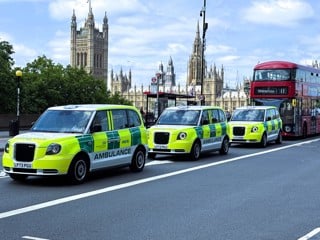The fleet operation alone is saving “well in advance” of £100,000 a year, according to Paddock.
And it’s not all about tackling utilisation and routing. Commercial Group has recently changed its company car policy, leading to further cuts in its CO2 emissions.
Previously a user-chooser policy, the job-need fleet has moved to a restricted badge policy after Commercial Group invited all the major manufacturers in to review their models.
BMW and Volkswagen Group brands – Audi, Skoda, Volkswagen – now make up the majority of the fleet, chosen primarily for their environmental credentials and reliability, but also for their driver appeal.
“We have standardised the fleet as much as possible because we cascade the vehicles down to the pool fleet,” says Paddock.
Commercial Group has also been steadily tightening its CO2 caps.
The company originally introduced a 160g/km threshold in September 2011; it reduced that to 140g/km in March 2012 and it is now targeting a further reduction, to 120g/km.
The company’s motive is entirely environmental; it has nothing to do with the 2013 changes to capital allowance thresholds, which fall to 130g/km for the main rate.
“Our business culture is all about sustainability and being part of the solution,” says Graham. “There are cost benefits, but for us it’s about our moral obligation.”
Biodiesel cuts tailpipe CO2 emissions by up to 80%
Commercial Group has on-site tanks for diesel and biofuel, enabling it to mix its own blends of biodiesel. It uses locally-sourced recycled chip oil.
The mix ranges from 10% up to 50%. Cars within warranty are kept within manufacturer requirements, typically up to 15%. Some older Skoda Octavias were capable of a 100% blend although the newer models are not as adaptable.
Higher blends work better in summer than winter, so seasonal adjustments are made, although an additive helps to boost the mix during the colder months.
Commercial Group uses biodiesel purely from an eco standpoint: these fuels emit up to 80% fewer CO2 emissions from the tailpipe depending on the mix.
The Ford Transits run on a blend of up to 50% which reduces their CO2 emissions from 233g/km to 180g/km. The motive is to cut carbon, but there are financial benefits as well. Around 5% savings on the fuel bill can be achieved.


















Login to comment
Comments
No comments have been made yet.